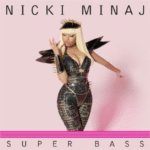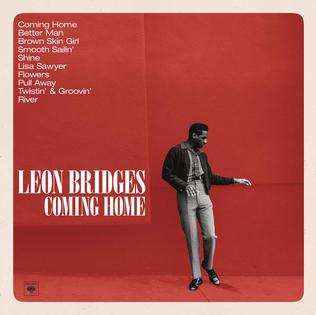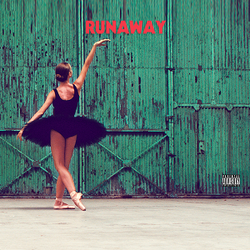 When Nicki Minaj dropped “Super Bass” in 2011, the pop world wasn’t ready for what was about to hit. What started as a bonus track on Pink Friday — almost an afterthought — became the song that detonated her career beyond the rap sphere and launched her into full-blown global superstardom. It was bubblegum and boom-bap, hip-hop and pop sugar rush, a record that managed to sound both futuristic and familiar. And more than anything, “Super Bass” solidified Minaj as the rare artist who could blend hard bars, infectious hooks, and cultural domination all in one glittering package.
When Nicki Minaj dropped “Super Bass” in 2011, the pop world wasn’t ready for what was about to hit. What started as a bonus track on Pink Friday — almost an afterthought — became the song that detonated her career beyond the rap sphere and launched her into full-blown global superstardom. It was bubblegum and boom-bap, hip-hop and pop sugar rush, a record that managed to sound both futuristic and familiar. And more than anything, “Super Bass” solidified Minaj as the rare artist who could blend hard bars, infectious hooks, and cultural domination all in one glittering package.
Over a decade later, “Super Bass” remains one of the defining pop-rap hits of the 2010s — a song that changed the landscape for female rappers and reshaped the idea of what a mainstream crossover hit could sound like. It’s part love letter, part brag, part banger, and part Barbie dream sequence — and it’s still as vibrant as the first time it exploded out of car speakers and club sound systems.
A Pop-Rap Collision Course
When Nicki Minaj arrived on the scene, she didn’t just enter hip-hop — she invaded it. Her verses on early tracks like Kanye West’s “Monster” and Drake’s “Up All Night” showed she could out-rap just about anyone in the room. But Minaj also had a flair for color, humor, and theatricality that hip-hop hadn’t quite seen in that form before.
“Super Bass” was her weapon of mass crossover. Produced by Kane Beatz and co-written with Ester Dean, the track was originally aimed at being a light bonus track, but fans (and Taylor Swift, famously) demanded its single release. What followed was a neon-tinted explosion that captured the essence of early-2010s pop — bright, high-energy, and shamelessly catchy — but still grounded in Minaj’s rapid-fire lyricism.
From the opening line — “This one is for the boys with the boomin’ system” — Minaj immediately sets a tone of confident flirtation. She’s playful but commanding, in control but not afraid to be coy. The beat kicks in with that rubbery, bass-heavy synth line that feels like a heartbeat in overdrive. It’s the kind of rhythm that begs for movement, and by the time the chorus hits, resistance is futile.
The Hook Heard ’Round the World
What makes “Super Bass” so special isn’t just its production or wordplay — it’s the perfect balance between the two. Nicki’s flow dances over the beat with precision, switching from machine-gun rap cadences to sugary-sweet singing without ever losing her footing.
The chorus — “Boom, badoom, boom, boom, badoom, boom, bass” — is pure pop genius. It’s nonsense on paper, but when paired with the beat, it becomes unforgettable. The sound of “boom” mimics both the bass drop and the sound of a pounding heart, perfectly marrying the track’s dual themes of love and rhythm.
Ester Dean’s co-writing fingerprints are all over that hook — she had also helped pen hits like “Firework” and “Rude Boy” — but Nicki’s delivery is what sells it. She moves from rapper to pop star to siren in seconds, showcasing the genre-blending versatility that would become her trademark.
In 2011, when female rappers were rarely given the same crossover opportunities as their male counterparts, “Super Bass” didn’t just top charts — it rewrote the playbook. Suddenly, a woman could dominate radio with a song that was both bubblegum and bar-heavy.
The Video: A Neon Fantasy
If “Super Bass” the song was an audio explosion, its music video was the visual equivalent of setting off fireworks in a Barbie dreamhouse. Directed by Sanaa Hamri, the video dropped a pastel-colored bomb on the internet: Nicki in bright pink wigs, icy blue bodysuits, and candy-coated backgrounds.
The imagery is iconic — Minaj lounging in pools of pink liquid, posing on motorcycles made of ice, surrounded by male models while delivering tongue-twisting rhymes. It’s camp, it’s confident, it’s cartoonishly over-the-top — and it works.
Every frame of the video cemented Nicki’s aesthetic: a blend of anime energy, Harajuku style, and hip-hop swagger. At a time when most rap videos leaned dark and gritty, “Super Bass” dared to be fluorescent. The visual aesthetic of the song became a key part of Nicki’s branding — paving the way for the “Pink Friday” universe and inspiring countless imitations in both music and fashion.
And let’s be real — for many fans, “Super Bass” was the first time they saw Nicki fully own the pop stage without diluting her rap edge. The visual confidence was undeniable.
Lyrically Clever, Emotionally Playful
Lyrically, “Super Bass” might seem like a simple flirtation track, but Minaj’s pen game is sharper than it looks. The song’s verses are packed with internal rhymes, quick turns of phrase, and character-driven delivery.
Take the opening lines:
“This one is for the boys with the boomin’ system, top down, AC with the coolin’ system.”
It’s not just catchy — it’s rhythmically tight, the kind of internal rhyme structure that makes it flow effortlessly.
Later, she weaves humor into her admiration:
“He just gotta give me that look, when he give me that look / Then the panties comin’ off, off.”
It’s playful, brash, and unapologetically sexual — a lyrical tone that would become central to Nicki’s brand. She’s flirtatious but in control, turning what could be a submissive trope into an anthem of feminine power. “Super Bass” wasn’t about chasing a man; it was about defining the standard.
The genius of Minaj’s delivery lies in how she blends swagger with sincerity. There’s a genuine affection underneath the bravado. It’s not just lust — it’s the adrenaline rush of attraction, rendered in sonic technicolor.
Cultural Detonation
When “Super Bass” hit radio, it didn’t just climb charts — it dominated pop culture. It peaked at number three on the Billboard Hot 100, sold over ten million copies worldwide, and became one of the most successful singles by a female rapper in history. But numbers only tell part of the story.
This was the track that turned Nicki Minaj from hip-hop’s breakout newcomer into a household name. It was played at proms, weddings, spin classes, and TikTok’s precursor, Vine. Everyone from preteens to grandmothers knew the chorus. And perhaps most importantly, it introduced a generation of young women — especially Black and brown girls — to a version of pop stardom that was loud, proud, and unapologetically feminine.
Before “Super Bass,” female rappers were often forced to pick a lane: hardcore or hyper-feminine, sexual or lyrical, street or mainstream. Nicki obliterated those binaries. She showed that a woman could rap about luxury cars and high heels, crush a verse with technical precision, and still craft a radio hit.
The song’s success also signaled a shift in pop production. That electro-rap bounce, the candy-coated synths over trap-inspired percussion, became the sound of the early 2010s. Artists like Iggy Azalea, Doja Cat, and even Ariana Grande’s later material owe a debt to the path “Super Bass” paved.
A Song That Never Fades
The true test of any pop song is its longevity — and “Super Bass” hasn’t aged a day. It’s one of those rare hits that feels both nostalgic and timeless. When it plays at a party now, there’s a collective scream from the crowd. Everyone knows the words, even the verses, which is a testament to how deeply it embedded itself in the cultural bloodstream.
It’s also a reminder of a more carefree pop era — before algorithms dominated music discovery, when a song could take over just because it was too good to ignore. “Super Bass” was universal because it was fun, and that joy has kept it alive through every trend that followed.
And its influence is still felt in Nicki’s own work. Later hits like “Starships,” “Anaconda,” and “Super Freaky Girl” all trace their DNA back to “Super Bass.” Each song balances sex appeal, humor, and rapid-fire delivery — but none of them would exist without the blueprint Minaj laid down in 2011.
A Pop-Rap Masterclass
From a musical standpoint, “Super Bass” is a production marvel. The beat’s combination of deep bass and glimmering synths captures the tension between power and playfulness. Kane Beatz’s production gives the song a kinetic energy that mirrors Minaj’s vocal gymnastics.
Her flow changes at least five times across the track — speeding up, slowing down, and bending around the rhythm like it’s made of elastic. It’s a masterclass in control and charisma. Most rappers have a single gear; Nicki shifts through six without losing momentum.
What’s also worth noting is how cleanly the song balances its pop elements with hip-hop credibility. Minaj never sacrifices her MC chops for melody. Instead, she builds the melody out of her flow, proving that rap could be pop without losing its edge.
The Legacy of “Super Bass”
Looking back, “Super Bass” wasn’t just a hit — it was a seismic cultural moment. It broke barriers for female rappers, redefined pop-rap fusion, and helped open the door for the genre fluidity that defines modern music.
Today’s stars — Cardi B, Megan Thee Stallion, Doja Cat, Ice Spice — all operate in a world Nicki Minaj helped create. A world where a rap verse can sit comfortably inside a pop structure, where a woman can be bold, campy, sexy, and powerful all at once.
Minaj herself has often called “Super Bass” her “gateway drug” — the song that introduced her to a global audience. And while she’s released harder, darker, and more intricate tracks since, none have quite captured the same sense of unfiltered joy.
It’s the rare kind of song that can make you dance, smile, and respect the craft all at once — and that balance is what makes “Super Bass” one of the all-time greats of the pop-rap canon.
Final Thoughts
“Super Bass” is more than just a catchy hit. It’s a declaration of presence. It’s Nicki Minaj saying, “I’m here, I’m loud, and I’m impossible to ignore.” The song’s bright exterior hides razor-sharp skill — a duality that defines her entire career.
Every element — from the thunderous beat to the candy-coated hook — works in harmony. It’s not just a song you hear; it’s one you feel, like a pulse under your skin. The bass doesn’t just boom — it vibrates with confidence, charisma, and charm.
More than a decade later, “Super Bass” still feels like that moment when the lights flash pink, the crowd screams, and you remember why pop music matters. It’s fun, fearless, and larger than life — just like Nicki Minaj herself.


